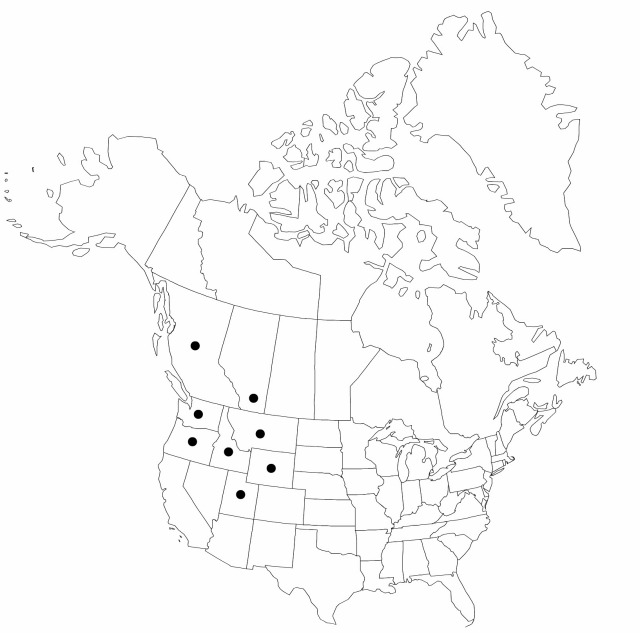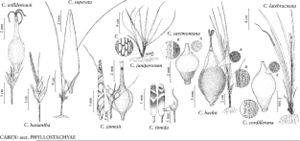Carex cordillerana
Syst. Bot. 26: 715, figs. 1C, 2C, 3C, 4C, 8. 2001.
Culms 6.8–40 cm. Leaves: basal sheaths pale to medium brown; blades dull green to yellowish green, exceeding culms, 1.5–5.9 mm wide, widest ones 2–5.5 mm wide, herbaceous, margins green, papillose. Lateral spikes 0–3, basal, on erect peduncles. Terminal spikes with staminate portion 2–3-flowered, 1.7–2.6 × 0.4–0.9 mm; pistillate portion 3–5-flowered. Pistillate scales yellowish green to dull olive green, margins green, 2.5–3 mm wide, essentially concealing perigynia, apex acute; distal scales ovate, apex acute. Staminate scales white or green, often with reddish-brown tinge, margins connate, sometimes for entire length, enfolding scales above, apex obtuse. Anthers 0.9–1.4 mm. Perigynia yellowish green to dull olive green, obovoid, 3.9–5.4 × 1.6–2.5 mm, tightly enveloping achenes, apex abruptly tapered; beak 0.5–1.6 mm, smooth. Stigmas clavate, erect, minutely papillose. Achenes brown, obpyriform, 2.8–3.5 × 1.5–2.4 mm.
Phenology: Fruiting spring–summer (late May–late Jul).
Habitat: Naturally disturbed, rocky slopes with organic layer and leaf litter in mesic mixed forests, or disturbed, open, grassy slopes
Elevation: 500–2400 m
Distribution

Alta., B.C., Idaho, Mont., Oreg., Utah, Wash., Wyo.
Discussion
Selected References
None.
Lower Taxa
"shortened" is not a number."widest" is not a number.
